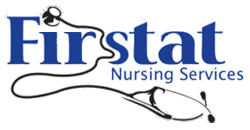Why is Good Discharge Planning So Important?
Effective discharge planning can decrease the chances that your relative is readmitted to the hospital, and can also help in recovery, ensure medications are prescribed and given correctly, and adequately prepare the caregivers.
Not all hospitals are successful in this. Although both the American Medical Association and the Joint Commission on the Accreditation of Healthcare Organizations (JCAHO) offer recommendations for discharge planning, there is no universally utilized system in US hospitals. Additionally, patients are released from hospitals “quicker and sicker” than in the past, making it even more critical to arrange for good care after release.
 Studies have shown that as many as 40 percent of patients over 65 had medication errors after leaving the hospital, and 18 percent of Medicare patients discharged from a hospital are readmitted within 30 days On the other hand, research has shown that excellent planning and good follow-up can improve patientsʼ health, reduce re-admissions, and decrease healthcare costs.
Studies have shown that as many as 40 percent of patients over 65 had medication errors after leaving the hospital, and 18 percent of Medicare patients discharged from a hospital are readmitted within 30 days On the other hand, research has shown that excellent planning and good follow-up can improve patientsʼ health, reduce re-admissions, and decrease healthcare costs.
Discharge planning should result in a written document, a discharge plan. The discharge plan should be a comprehensive tool and should be based on:
• where and how a patient will get care after discharge;
• what the patient and his or her support groups (family, friends, hired help) can do to facilitate recovery;
• particular healthcare problems that might occur in the home;
• arranging for necessary equipment or supplies in preparation for activities of daily living, such as a wheelchair, commode, or oxygen;
• It also should include information on whether the patient’s condition is likely to improve;
• what activities he or she might need help with;
• information on medications and diet;
• who will handle meal preparation, transportation and chores
What Firstat Will Provide:
✓ Meeting with patient and family members in the hospital – needs assessment.
✓ Review the Discharge paperwork – make sure all medications are correct
✓ Determine level of care needed in the home – Firstat can provide CNA’s (certified nurse assistants), LVN’s (licensed vocational nurses) RN’s (registered nurses)
✓ Home Inspection – prepare home for new medical equipment (shower chairs, hand held shower head, grab bars and transfer benches) Examining entrances and pathways to reduce tripping hazards. Toileting procedures and proximity for ease of use.
✓ Continuity of Care -Prior to discharge, arrange a training session with the client, therapist and caregiver. This keeps consistency in transfers and exercise while providing a chance to regain a level of independence.
✓ Oversight and Administration – A formalized treatment plan is created. Visits from the Director of Nursing ensure compliance and observation of any progress.
Multiple studies have explored the importance of effective discharge planning and transitional care, and have highlighted the very real benefits in improved patient outcomes and lower re-hospitalization rates

